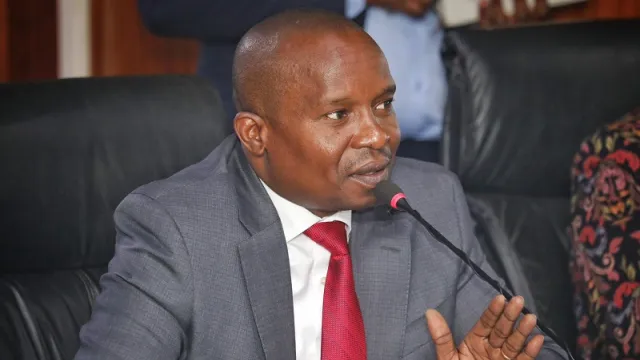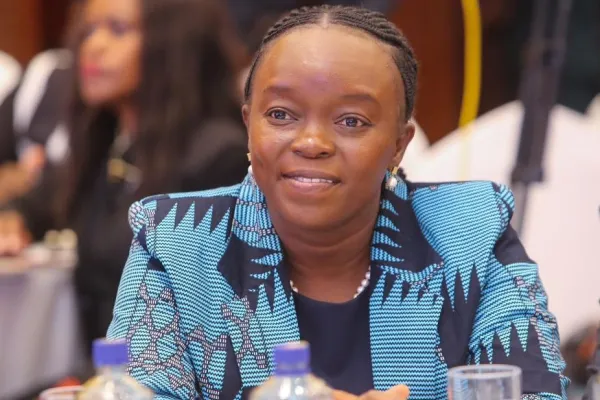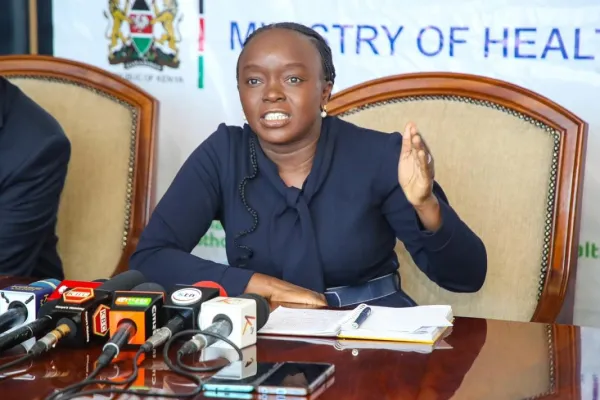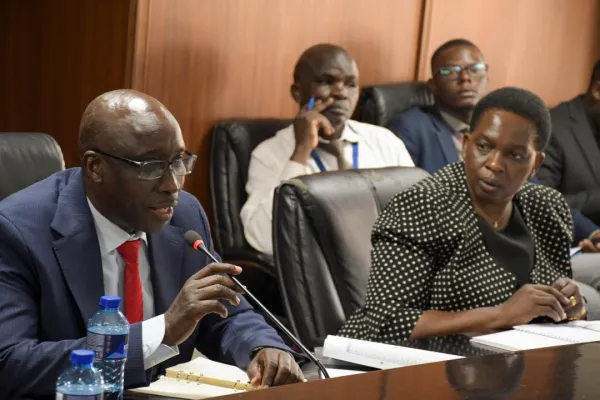Why Kenya seeks to gag TikTok

Why Kenya seeks to gag TikTok
Kenya has announced plans to restrict the use of the popular Chinese video-sharing platform TikTok among government officials to safeguard the protection of sensitive data.
Addressing Parliament, Interior CS Prof. Kithure Kindiki revealed that the National Security Council (NSC) is currently addressing the threats posed by various social media platforms, including TikTok.
“We are currently dealing with this matter of TikTok as the NSC. As you know, the Interior Ministry coordinates cybersecurity programs on behalf of the country. We, as the National Police Service (NPS) and National Intelligence Service (NIS), are working with the Ministry of Defence and that of ICT to guard our cyberspace from internal and external threats,” said the CS.
While there is currently no policy regarding the use of TikTok by public officials, Prof. Kindiki indicated that the NSC is considering limitations on its usage.
This consideration arises amidst concerns raised by stakeholders, including Kuria East MP Marwa Gitayama, who cited cybersecurity concerns and questioned whether there is a government policy regarding TikTok's usage by individuals holding critical government information.
“People holding critical government information are on TikTok. Is there a government policy regarding the use of social media platforms by government officials? China, where TikTok originated, has banned the use of TikTok. In the US, 34 out of 54 States have prohibited government officers from using the TikTok App on their phones. Are Kenyan government officials required not to have this App on their phones?” he questioned.
Read also: China’s TikTok faces ban in Kenya after live protest coverage
Limit certain TikTok aspects
Prof. Kindiki said the outcome of the NSC deliberations will inform the policy on whether or not to limit certain aspects of TikTok for use by government officials and certain ages in Kenya.
This matter is so complex, so consequential that it is not easy to look in one direction and decide whether to ban TikTok or not. The petition raises very grave issues. The issues are at the heart of the security and safety of our people,” explained the CS.
The discussion unfolded as part of a parliamentary session addressing a petition filed by Bob Ndolo, calling for the closure of TikTok operations in Kenya due to concerns over explicit content and security risks.
Prof. Kindiki outlined the government's efforts to address these concerns, including engagement with TikTok and scrutiny of its compliance with data protection laws.
“Honourable members, the TikTok platform has been used by criminals to spread malicious propaganda, steal popular accounts through identity theft and impersonation, conduct fraud by duping Kenyans into fake forex trade and fake job recruitment, and distribute sexual content and images through its live feature. These risks have caused distress among users, exposed minors to inappropriate content, and promoted discord among citizens,” he told the MPs.
The government is actively seeking TikTok's compliance with the Data Protection Act, 2019, and may enforce measures if the platform fails to respond adequately. Prof. Kindiki cited previous actions taken against World Coin as an example of the government's commitment to safeguarding citizens' data privacy.
Where Tiktok is banned
Globally, several countries and regions have restricted or banned TikTok use by government officials, primarily citing cybersecurity, privacy, misinformation, and national security concerns. These actions generally target the app's installation and use on government-issued devices. Here's a summary of the countries with such restrictions:
- Australia banned TikTok on work-related phones of federal agencies in March 2023.
- Belgium imposed a ban on TikTok from federal work devices in March 2023.
- Canada announced a ban on TikTok from all government-issued devices on February 28, following US moves.
- Denmark blocked TikTok on all work devices of government officials in March 2023.
- Estonia banned TikTok on central devices in March 2023.
- France prohibited all social media and recreational apps on government workers' phones in March 2023.
- Ireland issued a policy in April 2023 restricting TikTok on official public sector devices.
- Latvia banned TikTok on work mobiles of government employees in March 2023.
- Nepal banned TikTok across the country in 2023 due to concerns over social harmony and indecent materials.
- Netherlands advised against the use of TikTok on government phones in November 2022 due to data protection concerns.
- New Zealand banned TikTok from the phones of government lawmakers in March 2023.
- Norway banned TikTok from work devices in March 2023.
- Somalia banned TikTok in August 2023 due to concerns over explicit content and violent extremism.
- Taiwan prohibited TikTok on public sector workers' devices to strengthen security.
- United Kingdom banned TikTok on electronic devices of ministers and other government employees in March 2023 due to security concerns.
- United States has seen at least 34 of the 50 states announce restrictions on state government agencies using TikTok on government-issued devices as of April 2023. A federal ban on TikTok from government devices and systems has also been implemented, with agencies required to delete the app by the end of March. [email protected]



